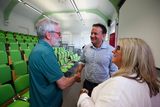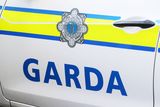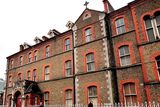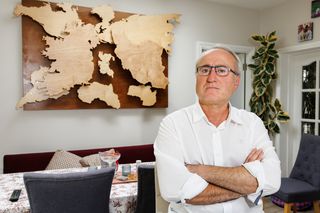Vision for a united Ireland cannot be ‘annexation of six more counties’, Leo Varadkar says
Former taoiseach downplays threat of loyalist violence by saying ‘it would be different to 100 years ago’

.jpg)
A united Ireland should not be an “annexation of six more counties” but a new state “that can be better for all of us”, former taoiseach Leo Varadkar has said.
Mr Varadkar also said he hopes the current Irish Government takes the decision to establish a forum to lead discussions on unity, and also appeared to dismiss concerns of potential loyalist violence in reaction to a united Ireland.
Mr Varadkar, who stood down as taoiseach in April last year, said he believes he will see a united Ireland in his lifetime but warned it is not inevitable.
He said that he has had no regrets so far since leaving elected politics, and is enjoying both “a lot of personal and intellectual freedom to say what I think”.
He was speaking at an In Conversation event with Rev Karen Sethuraman at St Mary’s University college in west Belfast, hosted by Féile an Phobail and Ireland’s Future.
Former Sinn Féin president and West Belfast MP Gerry Adams was among those in the audience for the event.
Mr Varadkar stressed that a united Ireland “has to be a new Ireland that is better for everyone”.
“That includes a bill of rights, guarantees civil protections and liberties,” he said.
Former taoiseach Leo Varadkar in conversation with Rev Karen Sethuraman at St Mary's University College, Belfast. Photo: PA
“Unification, in my view, is not the annexation of six more counties by the Republic of Ireland. It’s a new state and one that can be better for all of us, an opportunity that only comes around every 100 years, which is to design your state and design your constitution.”
In terms of what the current Irish Government is doing, Mr Varadkar described the Shared Island Unit, which was set up when he was taoiseach, as really positive.
But he said he would like to see the Irish Government lead a forum ahead of unity.
He said there was the New Ireland Forum in the 1980s, and the Forum for Peace and Reconciliation in the 1990s.
“I think there is a strong case now for us to convene the parties that are interested in talking about this – unions, business groups, civil society – in a forum to have that discussion, but I don’t see how that can happen if that isn’t led by the Irish Government, and I hope at some point during the course of this five-year government, a decision will be taken to do that,” he said.
Meanwhile, asked how he felt potential violent opposition to a united Ireland could be handled, Mr Varadkar suggested he felt “only a very small minority may turn to violence”.
“I know there are people south of the border who, when I talk to them about reunification, express to me concerns that there might be a very small minority within unionism who may turn to violence,” he said.
“I don’t think we should dismiss that as a possibility. I don’t think it will happen, to be honest.
“I n two referendums, both north and south, people would be very clearly giving their preference as to what should happen, it would be quite a different situation to when partition happened 100 years ago and it wasn’t voted for.”
Meanwhile, deputy first minister Emma Little-Pengelly suggested Mr Varadkar was “wrong in terms of the trajectory” towards a united Ireland, insisting the number of people voting for nationalist parties, around 40pc, “hasn’t moved since 1998”.
Join the Irish Independent WhatsApp channel
Stay up to date with all the latest news

.jpg)
.jpg)














